At one time, the City of Dubuque supported three hospitals – Mercy, Finley, and Xavier. Each fulfilled a medical necessity for the community, and each has a fascinating early history.
Mercy One Dubuque Medical Center
On January 13, 1879, Mother Mary Baptist Martin, Sister Mary Agatha Murphy, and Sister Mary Euphrasia (Irish Sisters of Mercy) traveled north to Dubuque, IA from Davenport to answer a call from Archbishop John Hennessy. Just five days after their arrival, the Sisters had readied St. Joseph’s Mercy Hospital, a facility that had previously housed Visitation Sisters, in a building near Third and Bluff Streets. The Sisters of Mercy were well prepared for running Dubuque’s hospital, since they had been operating Iowa’s first hospital in Davenport since October 1869. The Sisters admitted their very first patient, a Mrs. Thomas Murphy, on January 18, 1879.
Perhaps the Sisters of Mercy had to work a little harder in Dubuque than they had to in Davenport since the Dubuque hospital had no heat, electricity, or running water. Regardless of the primitive conditions and caring for those requiring nursing care, the Sisters took in fourteen orphans, several elderly people, and offered room and board to homeless girls. Fortunately, the government entered into a contract with the Sisters and paid them $.86 a week to care for ailing “marine” or river workers. Other patients in need of hospitalization were charged a weekly fee, and homeless patients were cared for at no charge.
Just a year after its founding, the hospital near the Cathedral had become overcrowded and too small to handle the needs of Dubuque’s growing population. By 1880, a brand new hospital was built on property the Sisters acquired high on a bluff above the city. The new hospital on James Street south of Third Street boasted four brick stories, a tin roof, and a footprint measuring 120 feet long by 50 feet wide. Ten physicians labored alongside the Sisters, who tended to the spiritual needs of their patients while also cooking, washing, ironing, and cleaning.
While Mercy Hospital has undergone many additions, renovations, and state-of-the-art improvements, the facility has remained on the same site for the past 140 years, offering expert care to the citizens of Dubuque.
Unity Point Health – Finley Hospital
Finley Hospital traces its early history back to the dreams of Dr. John W. Finley, Dubuque’s first general surgeon and second permanent physician. Dr. Finley came to Dubuque in 1836 and worked tirelessly in the city except for the Civil War years when he served as a surgeon with the 37th Iowa Volunteer Infantry. As one of Dubuque’s leading physicians, Dr. Finley treated patients in his west-side home, sometimes performing surgery in his attic operating room.
Although Dr. Finley had dreamed of starting a second hospital in Dubuque, he died in 1877 at the age of seventy before seeing his dream fulfilled. At the time of his death, Dr. Finley and his wife Helen lived in a large home near the site of the current Finley Hospital. Upon Helen’s death in 1883, the Finley home became the foundation for a new hospital, which was to be run by local physicians.
The Finley home was converted into a temporary, forty-bed hospital. The first patients began arriving in April 1890. A major fund-raising campaign conducted throughout the late 1880s generated enough donations to buy seventeen lots surrounding the Finley estate along with funds to remodel the Finley home and buy equipment.
Later, another round of aggressive fundraising supported the construction of a brand-new hospital, which was eventually built adjacent to the Finley mansion. On June 25, 1898, the new Finley Hospital was finished and opened for public inspection. Patients were moved out of the old Finley mansion into the new hospital; the mansion became a home for the hospital’s nurses.
Over the decades since its founding, Finley, like Mercy, has undergone major remodeling, new construction, and updating; however, the hospital continues to serve the community on the same site where Dr. and Mrs. Finley once lived.
Xavier Hospital
Almost sixty years after Finley Hospital opened, the Sisters of St. Francis opened Xavier Hospital, a 108-bed facility on the city’s north side. In 1949, the city’s third hospital boasted 132 beds and offered Dubuque’s first intensive care unit and its first recovery room. During the polio epidemic in the mid-1950s, the hospital cared for victims challenged by the disease, often treating patients in the corridors when the hospital’s population exceeded 100 percent.
By 1965, Xavier began experiencing a drop in patient admissions. In 1979, admissions dropped dramatically from 2,142 to 1,701 in the first six months of the year. In November 1981, the once popular obstetrics department was forced to close. In 1980, the Iowa Health Systems Agency determined Dubuque had some 32 more hospital beds than necessary.
On July 1, 1981, Mercy Health Center merged with Xavier, creating a joint venture between the Sisters of Mercy and the Sisters of St. Francis. The following year, all acute care services were moved from Xavier to Mercy.
At one point, it seemed inevitable that the former hospital would be demolished. Fortunately, Kennedy Construction Company, assisted by a City Council tax abatement arrangement, stepped forward and announced plans to renovate the five-floor structure. The construction company converted the original Xavier Hospital into the Windsor Park Retirement Center, opening in January 1989. Today, Windsor Park carries on the hospitality of Xavier Hospital, offering independent living apartments and amenities for those 55 and older.
This article is part of the Shades of Dubuque series, sponsored by Trappist Caskets, hand-made and blessed by the monks at New Melleray Abbey.


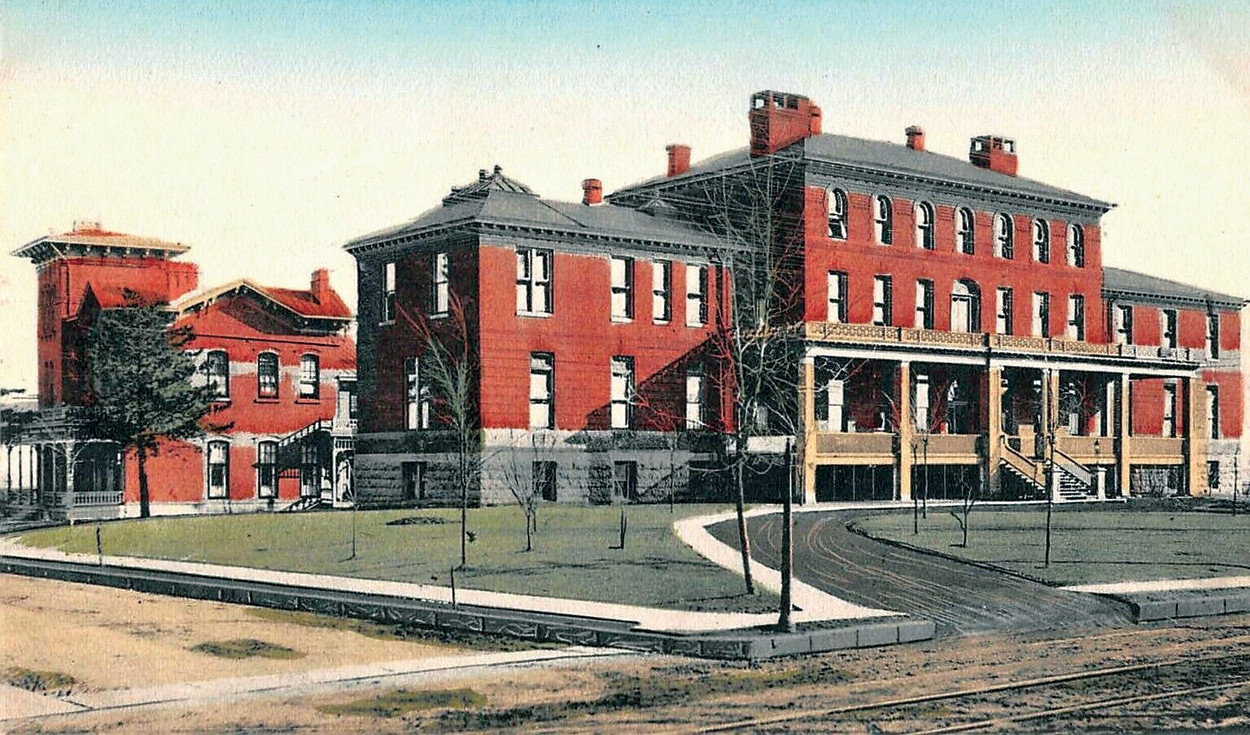
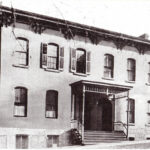
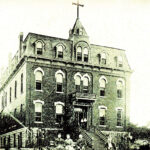
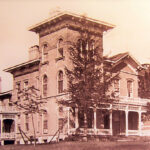
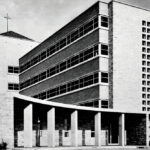


Very interesting. Thank you.
Nice well written article Connie.
Ty did not know that about the hospital